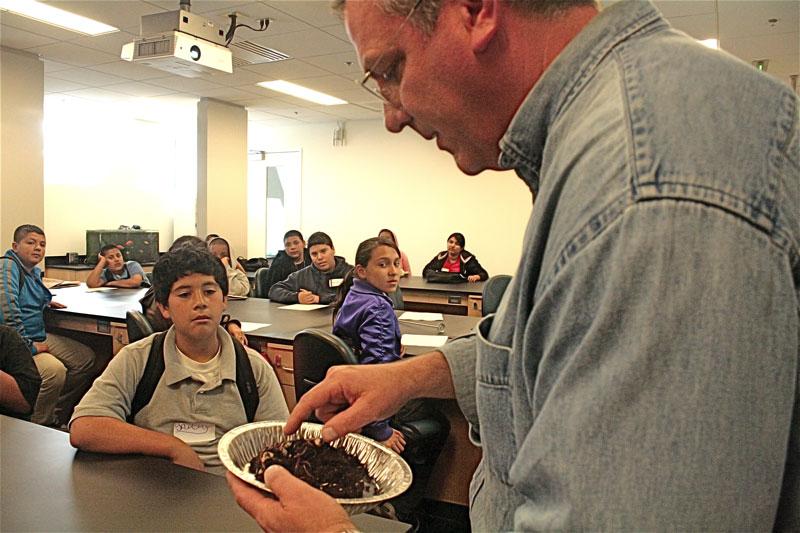
CSUN’s part in recycling aluminum cans and paper products today is commonplace and composting is not too far behind, as we see the benefits of turning once living things into fertilizer useful in enriching garden soil and houseplants.
CSUN Director of Publications Randy Thomson’s colleagues hail him as having a “passion” for composting.
Composting “contributes less to landfills and saves money,” Thomson said. “About 50 percent of food is thrown away. We can take this food and redirect it to our gardens, lawns and houseplants.”
Mixing specific materials like “browns,” common in dry components like straw, dead plants, autumn leaves and wood chips, and “greens,” garden weeds, fruit, vegetable scraps, coffee grounds, egg shells or horse manure, create a breakdown that results in the fertilizer that plants need.
Jim Logsdon, manager of landscape and grounds at CSUN said that even though the campus is not equipped to facilitate a composting process at this time, he said he believes the possibility is there for the future.
“We are in the process of upgrading our recycling program,” Logsdon said.
Logsdon said compost is supplied by Foothill Soil located in Newhall, Calif. and used in many of the planter and rose beds around campus. Logsdon said that a composting project on campus would be driven by space availability and there is limited space on campus.
The process is easy, said Steve Rohletter of Foothill Soil, “but it costs approximately $350,000.”
“The entire process, from beginning to end, takes between three and six months,” Rohletter added.
Rohletter said the most complicated part of a composting operation is the various licenses needed and it would take about an acre to run a small-scale operation.
Cynthia Signett, A.S. Recycling Coordinator, said that composting is an off-campus project because the campus does not have the space for such an operation. The proper environmental conditions, designated space and machinery are necessary components in a good composting operation.
“We are doing a lot of good things on campus and who knows what the future can hold,” Signett said. The A.S. February 2010 Feasibility Report identifies food scrap recycling as a potential new material to recycle in the future.
As for Thomson, he recently attended a three-day composting seminar and said that 75 percent of the discarded food at the seminar will be used to create compost. He said he plans to share his knowledge and experience with his colleagues.
“It’s all about sustainability,” Thomson said. “It takes the institutional will to do it.”
Thomson said there are many campuses, institutions and municipalities that see the benefits of composting and in some cases, “the benefits outweigh the costs.”
The compost enthusiast has created a website with the specifics about composting, www.sustainablesuburbanlife.com/compost.html.




